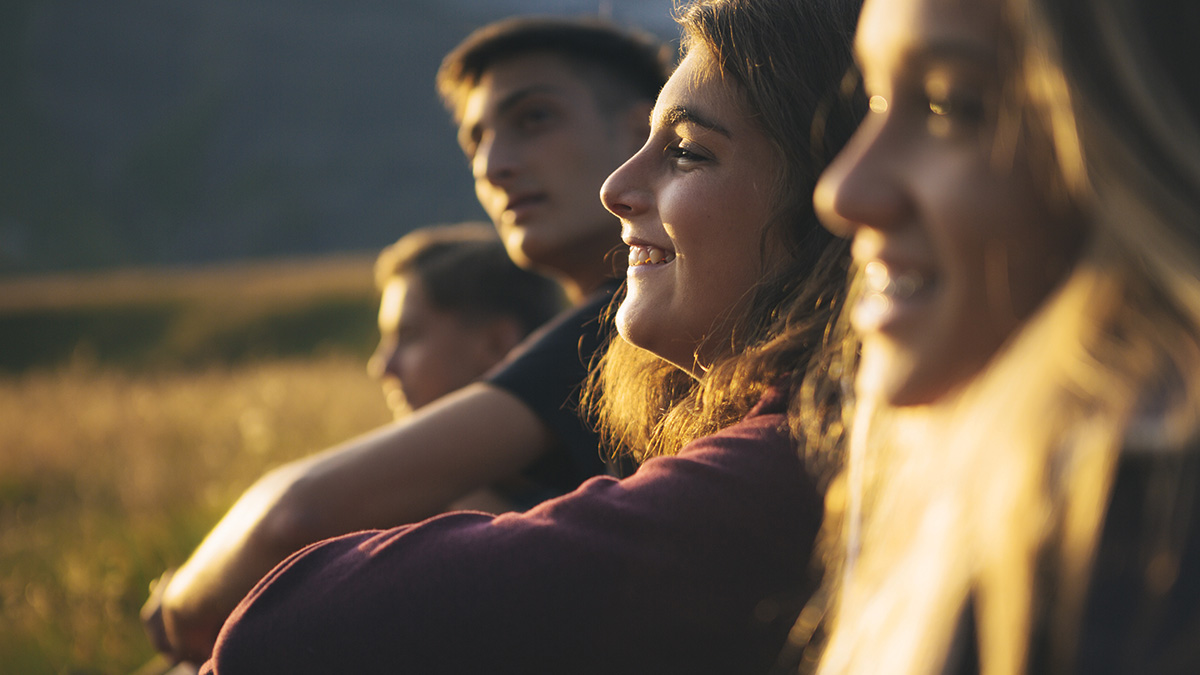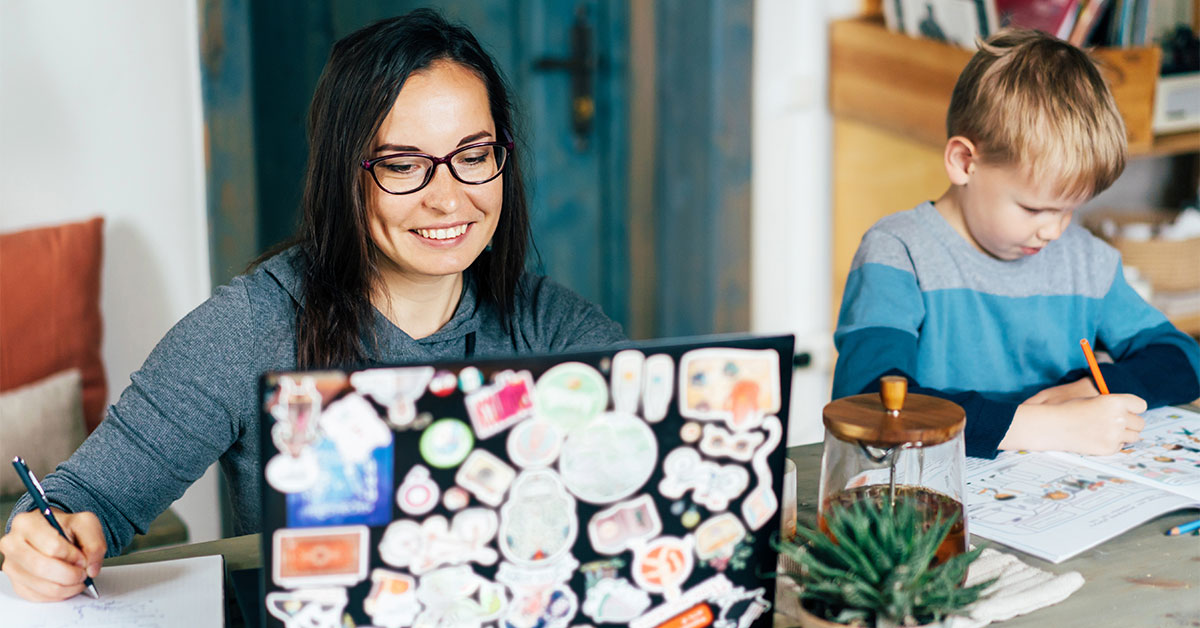As we come towards the end of what has been a difficult year, school and kinder stop for holidays and there’s lots to do. There’s the end-of-year busyness as we rush towards the finish line. There’s lots of trying to squeeze in seeing friends, buying presents and preparing food for gatherings. While all this activity can be fun for some – and certainly many people feel like there’s extra to celebrate this year – for others it’s an extremely stressful and anxious time of the year.
Continue reading “For some, Christmas isn’t merry and bright”Tag: COVID-19
A year of two halves – Y-Change in conversation with our President and CEO
It’s been a year like never before. One that has —in so many complex ways —demonstrated the constancy of change, as well as how rapid change can so brightly shine a light on existing inequality. A time when we’re confronted to see the reality of what lies before us and work through some of the most challenging times in our lives.
At the same time — amongst the very real upheaval of the COVID-19 pandemic and the effects it will continue to have on children, young people, families, and societies the world over — there are glimmers of hope. We’ve been presented with a time potentially like never before, when all is laid bare, to challenge ourselves and reimagine how we can work together to courageously change lives and shape a new future. This includes a future where — as we believe at Berry Street — children, young people and families are safe, thriving and hopeful.
Continue reading “A year of two halves – Y-Change in conversation with our President and CEO”
How to adopt a relationship-building approach
COVID has taken a huge toll on our collective mental health and wellbeing in Victoria.
For a lot of people who have previously suffered trauma or experienced any mental health problems it’s been even harder. For some children in out-of-home care who have experienced developmental trauma as a result of neglect or abuse, it’s been devastating.
Reports show during Stage 4 lockdown restrictions, there’s been a dramatic increase in Victorian children hospitalised due to self-harm and an unprecedented number of calls from Victorians to mental health services.
In this article we’ll explain how using a relationship-building approach can help a child feel safer, more secure and cared for.
Continue reading “How to adopt a relationship-building approach”Free Social Story: Getting tested for COVID
Getting tested for COVID is uncomfortable. The nurse or doctor needs to swab the back of the throat and mouth.
Being prepared for the procedure will help children cope better and feel less anxious.
Berry Street’s Take Two Developmental Specialists Team have developed a free printable social story that explains in familiar terms, what will happen and why the test is needed.
Take Two invites carers or parents (especially those looking after children with Autism Spectrum Disorder (ASD) or other developmental differences including a trauma history) to share the social story with their child to make a COVID test more manageable.
Continue reading “Free Social Story: Getting tested for COVID”Tips, tricks and resources: What’s been helping during COVID-19 and as we transition into our new “normals” | Part 3
Part 3 of our series ‘Mental illness relapse and recovery during a global pandemic: lived wisdom from young people’s perspectives’
“We will not go back to normal. Normal never was. […] We are being given the opportunity to stitch a new garment. One that fits all of humanity and nature.” – Sonya Renee Taylor
As a collective, we’ve found that the advice from many think pieces during this time has been removed from lots of people’s actual lived experiences. Right now, we’re in an absolute unknown. Things are going to be and feel different, strange and exhausting as we adjust to completely new versions of “normal”. For some of us, no amount of meditation and mindfulness helps in general, let alone during a pandemic, especially if our basic needs aren’t being met.
This is the final part in our series, ‘Mental illness relapse and recovery during a global pandemic’. For those of us who are working hard on our recovery journey, where can we seek specific support during this time? What are some useful tips, tricks and tools from peers in this space with relevant lived experience?
How COVID-19 intensifies symptoms of mental illness | Part 2
Part 2 of our series ‘Mental illness relapse and recovery during a global pandemic: lived wisdom from young people’s perspectives‘
“Shouting self-care at people who actually need community care is how we fail them.” – Nikita Valerio
For young people experiencing socioeconomic disadvantage, experiencing isolation and lockdown brings up a whole lot of stuff around coping mechanisms.
In part 2 of our series, we look at some changes in our own behaviour that we’ve observed and some common symptoms for those of us already managing mental illness.
Continue reading “How COVID-19 intensifies symptoms of mental illness | Part 2”
Each person’s experience of COVID-19 is unique | Part 1
Part 1 of our series ‘Mental illness relapse and recovery during a global pandemic: lived wisdom from young people’s perspectives‘
“We are not all in the same boat. We are all in the same storm. Some are on super-yachts. Some have just the one oar.” – Damian Barr
Amid all the noise of think pieces about self-care and the Novel Coronavirus (COVID-19), we’re not seeing much that focuses on what happens for young people who are in recovery with mental ill-health; in particular, for young people experiencing socioeconomic disadvantage, isolation and lockdown can have wide-ranging impacts.
In this three part series, we will explore what’s happening and what’s helping during this global pandemic from the perspective of young people with a lived experience of surviving tough times. We will also share some resources and tips we have discovered along the way and are finding useful.
Continue reading “Each person’s experience of COVID-19 is unique | Part 1”
Considerations for supporting children, carers & families during remote contact visits
In these uncertain times, it’s understandable that carers may be feeling elevated concerns about how to manage the changing expectations of contact with family members. As a therapeutic service, Take Two offers this guidance in managing the heightened emotions and thoughts of children in the out-of-home care (OOHC) system in these times. We also provide a list of some free video calling apps and programs that might be suitable to use.
Optimising your decision-making energy
Self-regulation
Self-regulation can be defined as the ability to control your behaviour, emotions and thoughts, and specifically, to be able to manage disruptive emotions and impulses (Bandura, 1991). In times like these, it becomes even more important to be building self-regulation skills in ourselves and our young people.
Building Stamina in At-home Learning
Are you looking for ways to help children maintain focus on their schoolwork at home? That is completely understandable. Children are accustomed to the rituals and routines of school. In their school’s classrooms, they go to a specific environment that deliberately is structured for learning. Now for many children, those structures are different, and they are trying to understand what it means to learn more independently. Based on our research at Berry Street Education Model (BSEM), stress can negatively impact a child’s stamina to learn and their ability to focus. Managing this change as parents, carers and teachers can be overwhelming. Here are three strategies that we hope will help:
Scaffolding Learning with Rich Tasks: Curriculum Design
During Covid-19, teachers are designing curriculum that students might complete either at home or onsite at school. Based on our research and strategies at the Berry Street Education Model (BSEM), we would like to offer suggestions to bolster your instructional planning. We recommend that teachers design rich tasks for your young people to do at home, rather than sending through smaller tasks. We do not want to overwhelm students or their parents with the need to manage too many things at once.
Remember many parents are working from home so they may have limited time and energy to support their child’s learning, and many teachers working from home might be juggling caring responsibilities as well, so let’s keep our expectations of each other and ourselves reasonable!
Continue reading “Scaffolding Learning with Rich Tasks: Curriculum Design”
Parents and carers: be kind to yourself
This an unpredictable and uncertain time for everyone. With schools closing many parents and carers are wondering how they are going to cope for long periods at home with the children and young people in their care.
It’s the same as what they tell you on planes. You need to put on your own oxygen mask before you can help others. It’s a huge struggle to care for children if we neglect to look after ourselves. While you may think: ‘easier said than done’ – it really does make a difference.
Here are 4 steps you can follow to help you be kind to yourself.













